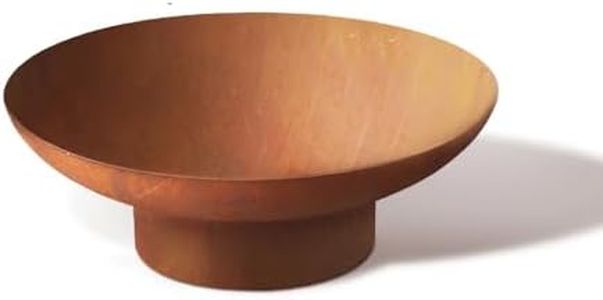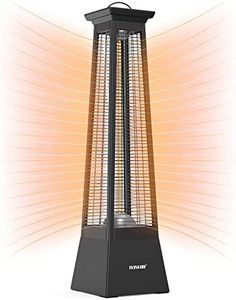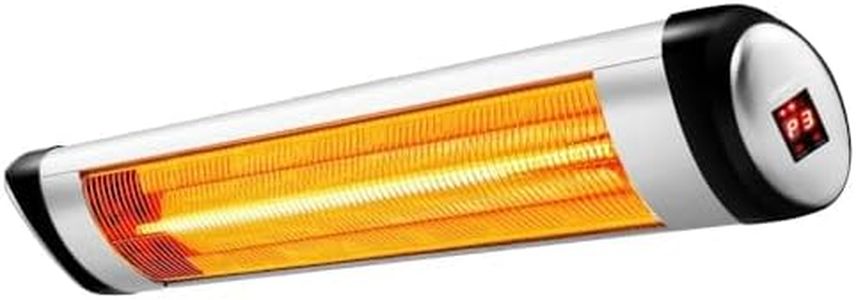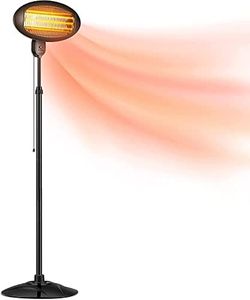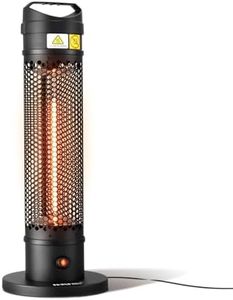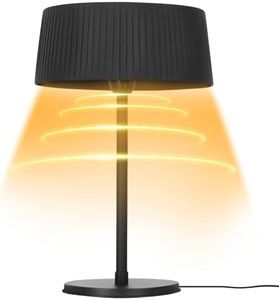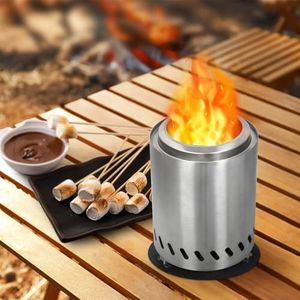We Use CookiesWe use cookies to enhance the security, performance,
functionality and for analytical and promotional activities. By continuing to browse this site you
are agreeing to our privacy policy
8 Best Tabletop Outdoor Heaters
From leading brands and best sellers available on the web.By clicking on a link to a third party's website, log data is shared with that third party.
Buying Guide for the Best Tabletop Outdoor Heaters
Choosing a tabletop outdoor heater involves understanding your outdoor space and how you plan to use the heater. These heaters are designed to provide warmth in smaller, more intimate settings like patios, balconies, or tables during cooler evenings. When picking a heater, consider how many people you want to keep warm, how big your outdoor area is, and how portable or easy to use you want the heater to be. The right heater will make your outdoor experience cozy and enjoyable, extending the time you can comfortably spend outside.Fuel TypeTabletop outdoor heaters typically use either propane, natural gas, or electricity as their fuel source. The fuel type matters because it affects convenience, portability, cost of operation, and availability of refueling options. Propane models are highly portable and easy to set up but require replacing or refilling propane tanks. Electric heaters are ideal for locations with easy access to power outlets and are generally more straightforward to operate, though less portable. Natural gas options are rare for tabletop heaters but useful if you have a gas line. To choose the right fuel type, think about where you’ll be using the heater and how often you’re willing or able to manage refueling or plugging in.
Heat Output (BTUs or Watts)Heat output is usually measured in BTUs (British Thermal Units) for gas heaters and watts for electric heaters. This spec tells you how much warmth the heater can provide. Lower values (around 5,000-8,000 BTUs or 1,200-1,500 watts) are suitable for small gatherings or limited spaces, while higher values are for bigger tables or slightly larger open areas. However, tabletop heaters are generally less powerful than standing patio heaters. To pick the right heat output, consider the size of the space and the typical number of people you want warmed at one time; more powerful units can provide warmth to a bigger area, but may be unnecessary if you’re using it for two people at a small table.
Size and PortabilityThe physical dimensions and weight of a heater influence how easy it is to move, set up, and safely position it on your table or outdoor surface. Smaller, lighter models are great for portability and easy storage but may provide less heat or have a smaller fuel tank. Larger models can be sturdier and more powerful but may not fit comfortably on all tables. When picking the right size, think about your available table space, how often you’ll be moving the heater, and where you’ll store it when not in use.
Safety FeaturesSafety features are important to prevent accidents and ensure peace of mind while using the heater. Look for features such as tip-over protection, automatic shut-off, and cool-touch exteriors. Tip-over protection is key if your heater is on a high-traffic table or if children or pets are nearby. Automatic shut-off ensures that the heater turns off if it gets too hot or unstable. Cool-touch ensures the exterior doesn’t cause burns. Consider who will be around the heater—families with kids or pets should prioritize strong safety features.
Weather ResistanceTabletop outdoor heaters should be able to handle some exposure to the elements, like rain or wind. Check for durable, weather-resistant materials like stainless steel or powder-coated metal, as well as weatherproof electrical components for electric models. This will help the heater last longer and perform well outside. If you plan to leave the heater outdoors, pick a model specifically designed with weather resistance in mind. If you’ll store it inside, this might be less critical.
Ease of Use and MaintenanceEase of use covers how simple it is to start, adjust, and clean the heater. Features like push-button ignition, adjustable heat settings, and removable trays for cleaning make operation easier. Low-maintenance designs save time and effort over the long term. Consider how comfortable you are with routine tasks like replacing fuel or cleaning; if you want something very user-friendly, look for straightforward controls and clear instructions.
